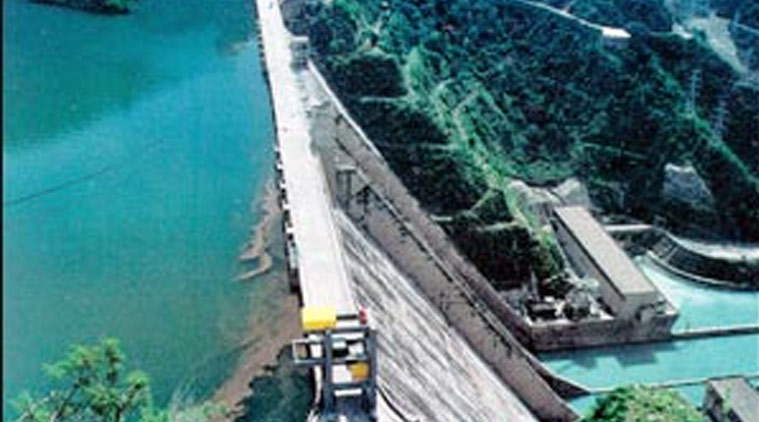The agrarian reformer
Sir Chhotu Ram devoted his life to raising the financial, social status of farmers
Written by Birendra Singh | Updated: October 14, 2018 4:09:34 pm

Bhakra Dam (File Photo)
The father of Bhakra Dam, Sir Chhotu Ram, has many firsts to his credit. He conceived of the Bhakra Dam way back in 1923, to rid the farmers of the so-called economic plague-spots of erstwhile Punjab state. He was also the originator of the concept of compensating the farmer for at least the expenses incurred by him on farming; the concept has now evolved into “Minimum Support Price”. This was revolutionary in those times as farmers were entirely depending on rains and seasonal vagaries coupled with other working conditions that had made their lives miserable.
He brought nine enactments to improve the financial and social status of farmers. Modern concepts like debt settlement boards, caps on interest, basic fairness to the tiller were included in these 1930s laws. The Punjab Relief Indebtedness Act, 1934 and The Punjab Debtors’ Protection Act, 1936, were created way back in the 1930s by Chhotu Ram. It won’t be an exaggeration to say that he gave shape to a bloodless revolution in the field of agriculture and farming.
Not only was he very active in fighting for the rights of poor and downtrodden in northern India, he was also very vocal on issues of national importance. In a powerful communication, Sir Chhotu Ram wrote to Gandhiji about the consequences that would follow if the demand for Pakistan after the liberation of the country is accepted. The 10-page letter written on August 15, 1944 had logical, well thought-out arguments against Partition. He wrote: “The provinces that are most intimately affected by the advent of Pakistan are the Punjab and Bengal and yet these provinces were never consulted before the formula was devised. The formula is expected to furnish a solution of the communal tangle and the present political deadlock. As already stated above, it will do neither.” Because of Sir Chhotu Ram’s opposition to the two-nation theory of Jinnah, Sardar Patel once remarked to Sri Ram Sharma that he would not have worried about any of Punjab’s problems had Chhotu Ram been alive.
Born on November 24, 1881, in the village of Garhi Sampla, Rohtak, Sir Chhotu Ram was knighted and conferred with the title of “Sir” in 1937 in recognition of his contribution to society and the region. He graduated from St Stephen’s College, Delhi in 1905 with a distinction in Sanskrit. He did his LLB from Agra College in 1910 and began his practice as an advocate in 1912.
Sir Chhotu Ram rightly recognised the causes of the deteriorating economic conditions of the agricultural classes in his time. Some of these as described by him included burden of unfair taxation and high rate of land revenue, inability to secure fair prices for their production, crushing burden of indebtedness, expenses on litigation, illiteracy and ignorance, under-representation of the class of peasantry in the public services, corruption and frequent occurrence of famines. All these factors compelled the agriculturists to borrow money from the moneylenders and to live under debt throughout their lives. There was no universal adult franchise and voting rights were given on divisive grounds. Peasants had no voice in the legislative set-up. Basically the peasant community was so isolated and downtrodden that it had no motivation to come up and claim its rightful status in the society.
In such times, Sir Chhotu Ram emerged as the country’s first big agrarian reformer who stood up and fought for the rights of agriculturists. His contribution assumes added significance as he single-handedly worked for betterment in the lives of poor and forsaken farmers. His sustained and dedicated efforts resulted in bringing the farmers out of their miserable, poor and deplorable living conditions and gave them a life of dignity and self-respect. He exhorted peasants to shed their inferiority complex and fatalistic outlook and become assertive and self-confident. He played a very significant role in the organisation of the Jats as a self-conscious community and helped them acquire self-confidence and self-respect.
To tackle the problem of unemployment, both in rural and urban areas, and to improve the lot of the peasantry, Sir Chhotu Ram advocated the need for agriculture-based industries as well as the development of cottage industries. What impressed him the most was Iqbal’s concept of khudi (self) and he used to recite the following lines of the poet quite often, Khudi ko kar buland itna ki har taqdeer se pehle/ khuda bande se khud pooche bata teri raza kya hai (Raise thyself to such a height that God may himself ask you what do you wish to achieve).
The writer is Union Minister of Steel and grandson of Sir Chhotu Ram






































No hay comentarios:
Publicar un comentario